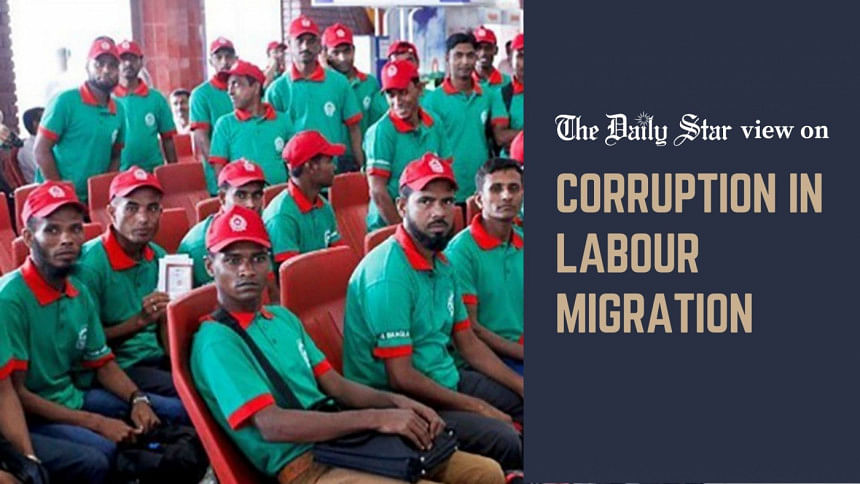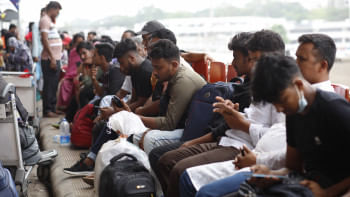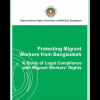Address corruption in labour migration

We are concerned about the decline in the number of our migrant workers going abroad this year, given the fact that remittance remains one of the major sources of foreign currency earnings for Bangladesh. According to a recent report by the Refugee and Migratory Movements Research Unit (RMMRU), labour exports from Bangladesh have dropped by 30.8 percent—from 1,305,453 in last year to 906,355 this year. What's worse is that the number of female migrant workers going abroad has gone down by 22 percent this year compared to last year.
According to the RMMRU report, persistent corruption, irregularities, and fraud have led to a contraction of foreign labour markets for Bangladesh. Italy and Serbia, for example, suspended labour recruitment from Bangladesh because some workers were found to have used fake documents. In Malaysia, a syndicate together with its Bangladeshi cohorts has embezzled $2 billion from Bangladeshi migrant workers by overcharging them, taking syndicate fees, and carrying out a "visa trade." As a result, many workers could not find the jobs they were promised in Malaysia and had to return home empty-handed, losing their life savings and being pushed into poverty in the process. Because of this, Malaysia shut down labour imports from Bangladesh in May this year.
The challenges facing labour migration must be faced with timely, effective actions. The government must take strict legal steps against those accused of embezzling migrant workers and conducting labour export through unlawful means. To this end, it must also engage with the authorities in the destination countries. Failure to ensure workers' safety and rights is another huge factor. The physical, mental and financial abuse that they face in the destination countries, compounded by our society's failure to reintegrate them, can be demotivating enough. If this issue is not addressed promptly, the number of migrant workers, especially women, is unlikely to rise. Proper diplomatic efforts are needed to ensure that countries recruiting Bangladeshi workers are committed to ensuring their rights and safety.
Finally, since our labour exports are still mostly in the low- and semi-skilled categories, we must invest into upskilling the migrant workers with various training so they can meet the global demands. This will help us expand and diversify the labour export market, as well as ensure steady remittance earnings.
Hence, we urge the authorities to prioritise resolving these issues and bring order in labour export, so that our migrant workers can go abroad without much worry, and continue to contribute to the economy.


 For all latest news, follow The Daily Star's Google News channel.
For all latest news, follow The Daily Star's Google News channel. 








Comments